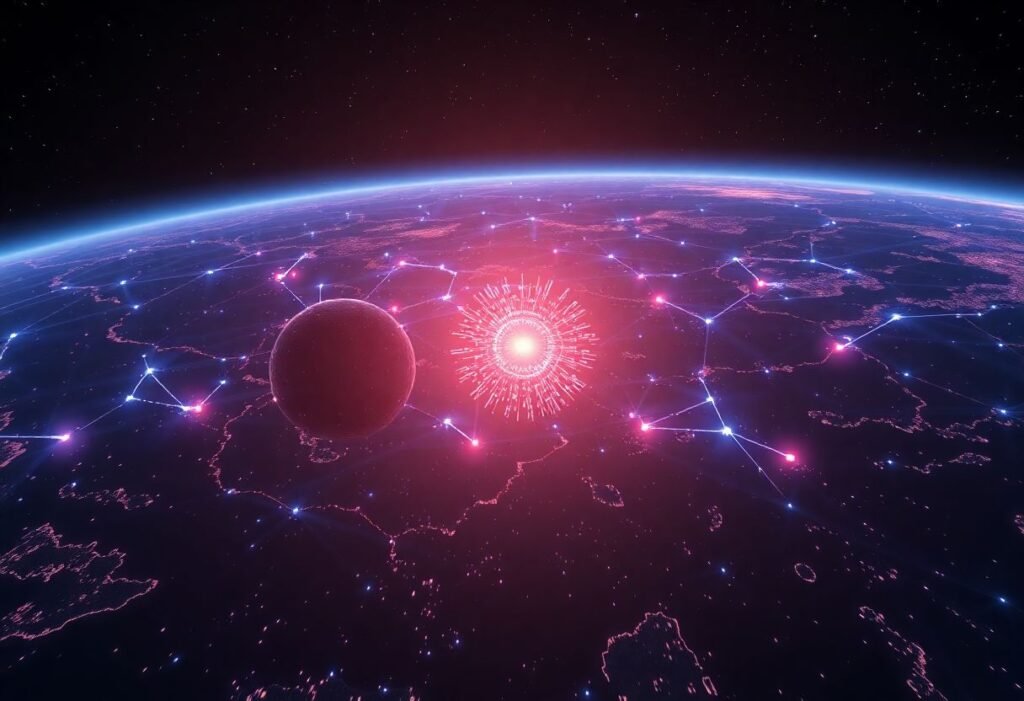Quantum computing represents a frontier of innovation, particularly in its application to space exploration. As humanity pushes further into the cosmos, the integration of quantum computing is poised to revolutionize how we understand and expand our universe.
The Impact of Quantum Computing on Space Navigation
Quantum computing enables unprecedented computational capabilities, which are crucial for precise space navigation. Traditional computation methods face limitations in processing vast amounts of data generated by spacecraft. Quantum algorithms can analyze this data exponentially faster, leading to more accurate trajectory calculations and optimal paths for interstellar missions. Moreover, quantum entanglement can facilitate advanced communications between distant spacecraft and mission control, ensuring real-time updates and enhanced mission success rates.
Enhancing Data Analysis in Astronomy
The field of astronomy continually generates massive data sets from telescopes and satellites. Quantum computing provides innovative approaches to analyzing these datasets, enabling astronomers to identify patterns and anomalies that were previously undetectable. This fast processing capability can lead to the discovery of new celestial phenomena and improve our understanding of dark matter and energy. By leveraging quantum machine learning techniques, researchers can refine their models and predictions, pushing the boundaries of space science.
Advancements in Simulations of Cosmic Events
Simulating cosmic events like black hole mergers and supernovae explosions requires immense computational resources. Quantum computers can model these complex phenomena more effectively than classical computers. Utilizing quantum simulations allows scientists to explore various scenarios and outcomes, contributing to the development of more robust theoretical frameworks in astrophysics. As we uncover the mysteries of the universe, quantum simulations will play a fundamental role in shaping future missions and research directions.
Optimizing Resource Allocation for Space Missions
Resource management is critical in long-duration space missions. Quantum computing can optimize logistics, such as fuel consumption and habitat allocation on ships traveling through space. By applying quantum optimization algorithms, mission planners can ensure that every resource is utilized efficiently, thereby extending the viability of missions. This will become increasingly important as we embark on longer journeys to destinations like Mars or beyond.
Facilitating Quantum Communication in Space
Secure communication is paramount in space exploration, especially as we send sensitive data back to Earth. Quantum key distribution is an emerging technology that relies on quantum mechanics principles to secure communications. Implementing this technology can prevent unauthorized access to mission data, ensuring the integrity and privacy of scientific discoveries made during space expeditions. By fostering a robust communication infrastructure, we can enhance collaboration among countries and institutions involved in space exploration.
Future Prospects of Quantum Computing in Expanding Human Reach
The future of quantum computing in space exploration holds immense potential. As technology advances, we can anticipate breakthroughs in propulsion systems powered by quantum technology, allowing spacecraft to travel more swiftly across vast distances. Furthermore, integrating quantum computers with AI will drive autonomous decision-making in space missions. These innovations will not only enhance our understanding of space but also pave the way for human colonization of other planets, marking a new era of exploration and discovery.
Disclaimer: This article is intended for informational purposes only and should not be construed as professional or technical advice.





















